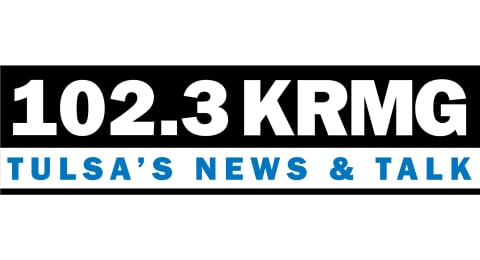In mid-January, the voter advocacy organization No Labels filed a complaint with the U.S. Department of Justice, asking investigators to look into what the organization calls an unlawful attempt to subvert Americans’ voting rights.
A letter to the DOJ, signed by five leading members of No Labels, addressed what the group calls “Unlawful Harassment and Extortion of No Labels and its Supporters, Staff, Vendors, and Potential Candidates.”
[Hear the KRMG In-Depth Report on ‘No Labels’ and the 2024 presidential election HERE]
No Labels first formed in 2009, with the goal of bringing politicians back to working on solutions through dialogue and negotiation.
Co-Founder Holly Page tells KRMG it’s important for people to understand it’s not a political party.
“We are advocating for elected officials to put the country’s interests before political parties,” she said, “not in every single instance, but when it’s really important.”
In a recent Reuters/Ipsos poll, nearly 70% of Americans indicated they are “tired of seeing the same candidates in presidential elections and want someone new.”
That same poll showed about a quarter of the electorate undecided on the race, with former president Trump outpolling the incumbent by about six points.
No Labels has long sensed the frustration of voters and tried to work toward a solution that would offer a new alternative - specifically, on November’s presidential ballots.
“We are seeking to get on the ballot in every state in the union,” she said, adding that she’s confident they will achieve that goal.
But because of the harassment and targeting of her group by the existing power structure, she said, they’re not naming their potential candidates yet, nor openly discussing how they’ll eventually choose a candidate.
“There are people who we believe are, you know, worthy, but we’re not focused on that right now,” Page told KRMG. “We are focused on getting the ballot. Because it doesn’t matter, we could have the greatest candidates ever, if we don’t have the ballot it won’t mean anything.”
To win the election, a presidential candidate must get a majority, which currently means receiving 270 votes in the Electoral College.
If no candidate achieves that majority, the election goes to the U.S. House of Representatives - a scenario which last occurred in 1824.
For some, that’s a deeply troubling possibility, and one which Page says they have taken into consideration.
“In 48 states in the nation, including your own... the candidate with the most votes win all the electoral votes,” she explained. “That means, in a three-way race, 33, 34, 35 percent could actually win all the electoral votes in your state, and in 48 states total.”
“We are innovative and agile,” Page continued. “And we have said that over the course of the summer month, if it was clear that the candidates running on the No Labels ballot line could not outright win, we would pull the ballot. Because No Labels will control the ballot, not the campaign or the candidates.”
According to the Oklahoma Constitution, an independent candidate, or candidate for a party not officially recognized by the State of Oklahoma, can get on the November presidential ballot by obtaining a number of signatures of registered voters equal to three percent of the votes cast for governor in the last general election.
Based on the 2020 gubernatorial race, that means the No Party candidate would need to gather roughly 35,000 signatures.
“We hope to give the American people an opportunity to, for the first time in a long time, vote out of hope instead of fear,” Page told KRMG.
“More choices are never a bad thing in a democracy.”

:quality(70)/cloudfront-us-east-1.images.arcpublishing.com/cmg/QA4IR6E53REOJHPGPVJ6M5FNT4.jpg)
:quality(70)/cloudfront-us-east-1.images.arcpublishing.com/cmg/RO2EVRHZIRFULGCWVOYRDLVUTI.jpg)
:quality(70)/cloudfront-us-east-1.images.arcpublishing.com/cmg/BY5Q5EUP55A3NBU6AQNWFJQCO4.jpg)
